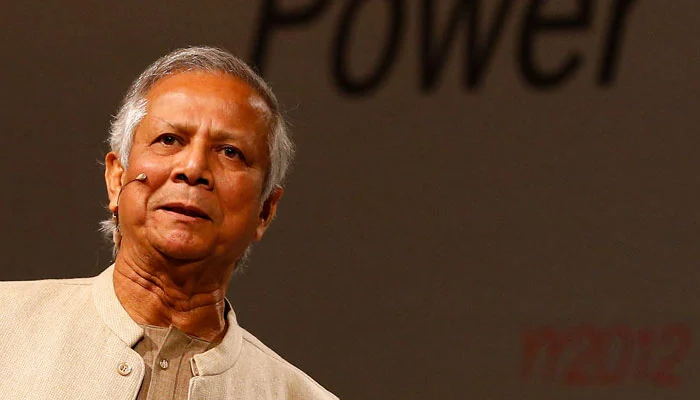
Muhammad Yunus: The Journey from Microcredit Innovator to Bangladesh’s Interim Leader
Muhammad Yunus, a renowned economist and social entrepreneur from Bangladesh, is best known for his groundbreaking work in microfinance and microcredit. His efforts in these areas led to him being awarded the Nobel Peace Prize in 2006, an honor he shared with the Grameen Bank, which he founded. Yunus’s work has had a profound impact on alleviating poverty by providing small loans to impoverished individuals, particularly women, who lack access to traditional banking systems.
Early Life and Education
Born on June 28, 1940, in the village of Bathua, Bangladesh (then part of British India), Muhammad Yunus grew up in a family that valued education. His father was a successful jeweler, and his mother was a deeply compassionate woman who often helped the poor. Yunus’s early exposure to poverty and inequality likely influenced his later work in social entrepreneurship.
Yunus pursued higher education in economics, first earning a bachelor’s degree from Dhaka University and then moving to the United States, where he earned a Ph.D. in economics from Vanderbilt University. He later became a professor of economics at Middle Tennessee State University before returning to Bangladesh in 1972, just after the country gained independence.
Founding of Grameen Bank
In 1976, during a period of severe famine in Bangladesh, Yunus came up with the idea of providing small loans to poor villagers to help them start small businesses. This concept, known as microcredit, was revolutionary at the time because it defied conventional banking practices that required collateral for loans. Yunus believed that the poor could be as creditworthy as the rich, and that with a little financial help, they could lift themselves out of poverty.
Yunus started by lending small amounts of money from his own pocket to 42 women in the village of Jobra. The success of this initiative led him to establish the Grameen Bank (Grameen means “village” in Bengali) in 1983. The bank’s model was based on trust and mutual accountability, with borrowers forming small groups to support each other. The Grameen Bank’s success inspired similar microfinance institutions around the world, making Yunus a global icon for poverty alleviation.
Nobel Peace Prize and Global Recognition
In 2006, Muhammad Yunus and the Grameen Bank were jointly awarded the Nobel Peace Prize for their efforts to create economic and social development from below. The Nobel Committee recognized Yunus’s innovative approach to fighting poverty, which empowered millions of people, particularly women, to improve their lives through entrepreneurship.
The award brought Yunus international acclaim and solidified his reputation as a pioneer of social business—a concept he champions, which focuses on businesses that are created to solve social problems rather than to maximize profit.
Political Involvement and Interim Leadership
Muhammad Yunus’s appointment as the interim leader of Bangladesh comes at a critical juncture in the country’s political landscape. His selection follows the resignation of Prime Minister Sheikh Hasina, who had been a dominant figure in Bangladeshi politics for many years. Yunus’s leadership is expected to bring a new focus on democratic principles, human rights, and economic justice, which align with his lifelong commitment to improving the lives of the poor and marginalized.
Yunus’s involvement in politics is not new. In 2007, he briefly considered forming a political party, but he eventually decided against it, preferring to focus on social business and poverty alleviation. However, his appointment as interim leader now places him in a pivotal role where his principles of fairness, equality, and empowerment will be tested in the political arena.
Challenges Ahead
As interim leader, Muhammad Yunus faces numerous challenges, including managing the transition to a stable and democratic government, addressing human rights concerns, and ensuring that the needs of Bangladesh’s poorest citizens are prioritized. His leadership will also be scrutinized by both domestic and international observers, who will be watching to see if he can translate his success in microfinance into effective political governance.
Yunus’s background as a social entrepreneur and his commitment to ethical leadership provide hope that he can guide Bangladesh through this period of uncertainty. His ability to foster collaboration, build trust, and implement innovative solutions will be crucial as he navigates the complexities of leading a nation with a history of political turmoil.
A New Chapter for Bangladesh
Muhammad Yunus’s appointment as the interim leader of Bangladesh marks a significant moment in the country’s history. It represents a shift from traditional political leadership to one rooted in social justice and economic empowerment. As he steps into this new role, Yunus has the opportunity to shape the future of Bangladesh, ensuring that it remains on a path toward democracy, stability, and prosperity for all its citizens.







